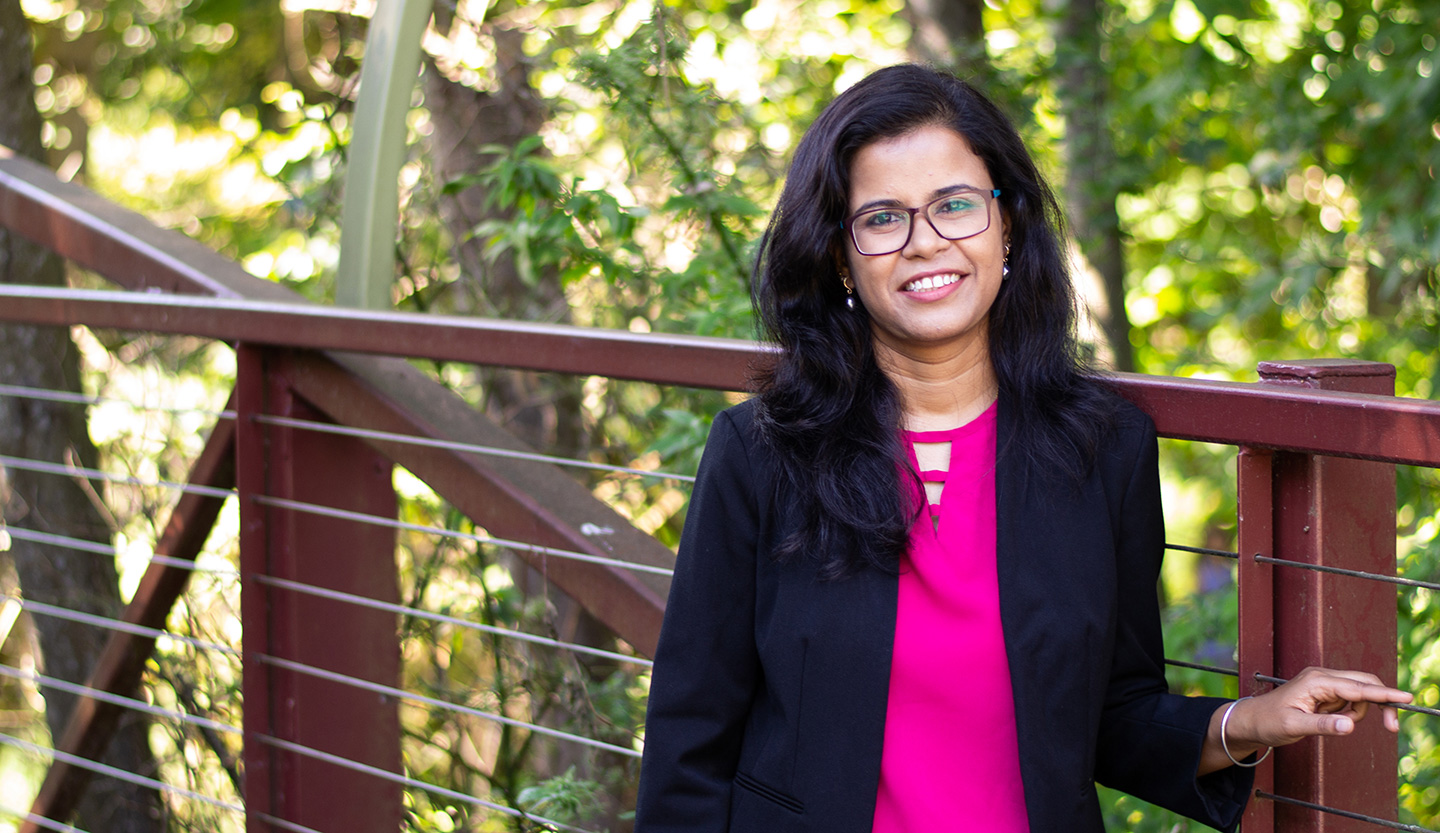When Tanu Mitra saw a faculty job posting at the University of Washington Information School late last year, the computer scientist said that she was instantly drawn to it.
“This is the powerhouse,” Mitra said of the iSchool, where she recently started as an assistant professor with expertise in social computing, computer-supported cooperative work and online misinformation.
“What better place to be?” she said in a recent interview, pointing out that the UW’s Center for an Informed Public, where she was recently named a faculty member, was also a particular draw.
“We’re incredibly fortunate to have Tanu join the iSchool and the CIP, where her research on misinformation, conspiracy engagement, hate groups and crowdsourced news credibility is a perfect fit to our current work in the CIP,” said Jevin West, an iSchool associate professor who is serving as the CIP’s inaugural director.
At the iSchool, Mitra will lead the Social Computing research group, where her work will focus on studying and building large-scale social computing systems to understand how misinformation, disinformation and other problematic content is shared and amplified, as well as methods to counter that type of content.
“I consider myself an unconventional computer scientist.”
Mitra recently relocated to Seattle from Virginia, where she was an assistant professor in Computer Science at Virginia Tech. She received her Ph.D. in Computer Science from Georgia Tech’s School of Interactive Computing and her master’s in Computer Science from Texas A&M University.
“I consider myself an unconventional computer scientist,” Mitra said, noting that unlike some in the field, when she examines complex problems, she usually starts with questions that are rooted in psychology and sociology.
For researchers like Mitra who study how misinformation is shared and amplified online, the transformative events of 2020 — including the ongoing COVID-19 pandemic, racial justice protests and the U.S. elections — have reinforced the importance of understanding not only how people create, consume and communicate information online but also how they connect with others through social media and other information-sharing platforms.
Mitra’s recent research has involved studying how YouTube algorithms promote and recommend certain types of misinformative content. According to a May 2020 paper published as part of the Conference on Computer-Supported Cooperative Work and Social Computing: “We find that demographics, such as, gender, age, and geolocation do not have a significant effect on amplifying misinformation in returned search results for users with brand new accounts,” Mitra wrote along with two Virginia Tech Ph.D. students she’s advised, Eslam Hussein and Prerna Juneja. “On the other hand, once a user develops a watch history, these attributes do affect the extent of misinformation recommended to them.” (Juneja is now at the UW iSchool.)
For researchers, auditing algorithms, especially for problematic content, is something that is still fairly new, Mitra said. And more broadly, the ways algorithms influence what people see online remain largely mysterious to most information consumers, she said. There’s a great deal of work to be done to improve public understanding. “How do we work with AI systems that actually explain to regular people how they’re functioning?”
Another area of Mitra’s research has looked at how hate groups utilize cross-platform communication using Facebook and Twitter to achieve different purposes. One key finding from research Mitra did with Ph.D. student Shruti Phadke at Virginia Tech: Hate groups often use Facebook for group radicalization and recruitment while they use Twitter to reach a more diverse follower base. (Phadke is now at the UW iSchool.)
“This is one of the research projects that was very disorienting and upsetting to see the ugly side of humanity, not only for myself but also the students,” she said. Given the subject matter, Mitra said, it’s important for researchers to pull themselves away periodically to process the distressing information they’re studying.
Beyond the dark world of hate groups, logging off social media periodically is generally good advice for anyone who consumes information online. That’s something Mitra applies in her personal life as well, where she enjoys gardening and taking walks, both activities where she can disconnect from electronic media. With COVID-19 stay-home mandates, Mitra says she’s been cooking a lot of Indian food and has even picked up playing violin after many years of not practicing.
While starting a new job and moving across the country during a pandemic was an unusual set of circumstances to deal with, Mitra said that the work ahead couldn’t be more important.
“I’m thrilled to be here,” she said.
